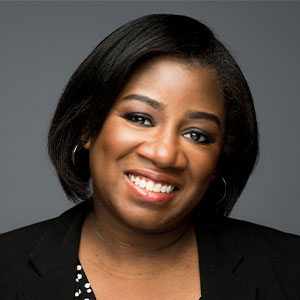Discover how Bristol Myers Squibb strives to deliver innovative medicines for patients with serious diseases
Patients around the world have been impacted by the work of Bristol Myers Squibb (BMS), a global biopharmaceutical company committed to discovering, developing, and delivering innovative medicines that help them prevail over serious diseases. By combining the agility of biotech with the reach and resources of an established pharmaceutical company, BMS has become a renowned name in the biopharma industry. Powered by talented individuals who drive scientific innovation, the company has made remarkable advancements in oncology, hematology, immunology, and cardiovascular disease. Aware that its responsibility transcends medicine, BMS promotes health equity globally and works hard to increase access to life-saving medicines for populations disproportionately affected by serious diseases and conditions. 
Today we sit in an interview with Imara Charles, who is Global Vice President, Process, Digital Excellence, and Supply Chain at BMS. She begins by retracing the centuries-long history of the organization. “Ever since its inception in the 1800s, BMS’ mission has been to bring medicines and health solutions to patients. Throughout that century, BMS helped provide medicines to soldiers during the Civil War, and even produced early tonics and laxatives towards the end of the era,” she opens.
“While our mission remains the same to this day, we are now also focused on incorporating the latest science and technology into our processes as well as improving our research and development to tackle serious diseases across a variety of therapeutic areas. Over the last few decades, we have expanded into the pharmaceuticals sector, with the introduction of major drugs. A shift to biopharma occurred in 2009, as we partnered with smaller companies, namely Medarex to bring forward new medicines to improve the quality of life of patients across the globe. At BMS, we have always prioritized innovation, whether by evolving to address the greatest patient needs or by adapting to the latest science and technology. This is one of the reasons why I love working here and helping to foster innovation within the supply chain,” she adds.
Meeting patients’ diverse needs
Imara delves into the range of products currently covered by BMS. “We offer a broad selection of pharmaceutical drugs, including pills that come in bottles, blister packs, or tablets, as well as biologics that are typically administered as injectables, often in clinics and hospitals. More recently, we have expanded our portfolio into new modalities including cell and gene therapies. Cell therapy involves producing personalized medicine for an individual patient, which makes these supply chains extremely complex. Indeed, because our portfolio is diverse, our supply chain has to be particularly agile and able to serve different types of patients across the globe, both in commercial centers and increasingly in low- and medium-income countries,” she enlightens.

As a diverse woman occupying an important position in a traditionally male-dominated industry, Imara is well-positioned to provide unique insights into the challenges and opportunities for women in the field. “I have been fortunate to have had a diverse and interesting career, spending time in laboratories, manufacturing sites, and boardrooms. This has empowered me to get my hands dirty and to influence change across multiple levels within the companies where I have worked. One common theme I have encountered throughout my various positions is that I am often one of, or one of very few – if any at all – women in the room. At first, I found this a little intimidating as these situations often lead to people, including myself, being more reserved in how they approach new opportunities and especially innovation. Generally, it can be particularly daunting to bring new ideas forward when you are a minority voice in the room, but for better or worse – I have always tried to make sure my voice is heard.
“Much of my early career was spent in a smaller manufacturing company that fostered a culture encouraging everyone to voice their ideas, where I was able to report to a leader that encouraged – almost required – that I speak up despite my somewhat junior position. Not only was I able to express my ideas and opinions within the four walls of the company, but I also had the opportunity to share them with leaders from across the industry as they joined our table to navigate the various challenges they were dealing with. Consequently, that ‘speak up’ mindset has stayed with me throughout my subsequent roles and at BMS, and I have been fortunate enough to report to leaders who have encouraged that speak up culture . In supply chain today, there are many opportunities with technology and innovation, and the pace of change in the industry is so fast, making the importance of speaking up even more essential. If we do not allow room for all voices, we will always be lagging behind, and we will never advance at the pace that we need to keep up with the world. Thus, companies like BMS are leaning into this ‘speak up’ culture because they have to in order to stay cutting edge, otherwise, they will always fall behind,” she explains.
Investing for the future
As the interview draws to a close, Imara brings our attention to the various tools BMS leverages to predict outcomes. “Ten years ago, most companies relied on standard ERP models to capture supply chain transactions, especially with the introduction of serialization, which enabled track and trace. However, with the emergence of artificial intelligence, machine learning, and digital twin optimization, we can now use predictive analytics to not only predict future trends, but also to prescribe actions. To achieve this, we are upgrading our systems to offer advanced analytics, optimization, and predictive intelligence, and integrating our data architecture to allow us to work seamlessly with it. By using predictive intelligence for decision-making, we create more efficient processes and eliminate unnecessary manual work. Through investing in our people, we create increased data expertise and a data citizenship like culture; we are preparing for the future for whatever comes next,” she concludes.
